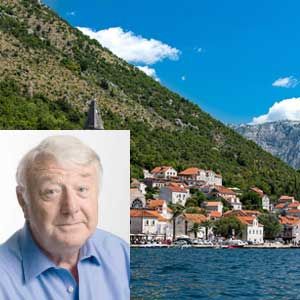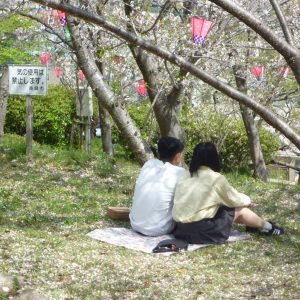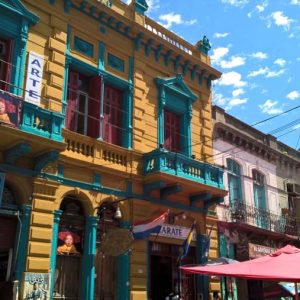The “Then” part of this month’s musing is a trip to Montenegro which, back in the early 1960s, was part of Yugoslavia – a nation we now refer to as “Former” since the death of Marshall Tito led to the separation of its constituent nations.
How Montenegro, and memories of a working trip some 60 years ago, came into my thoughts constitutes the “Now” element of my essay, which starts with the local reaction to a recent tragedy in the Midlands.
It was a familiar reaction. The laying of floral tributes close to the site, the placing of cards and teddy bears, helium balloons and candles. We’ve seen it so often on TV news bulletins that it has become a well-established ritual when tragedy strikes.
And it made me wonder why so many of us now need to display our grief in such a fashion. When did we become so emotionally incontinent?
Let me stress I am not in any way diminishing the tragedy, indeed, the horror, of such events. But when did this need for flowers and balloons, teddy bears and tea lights come into it?
Time was when we kept our feelings under control, “stiff upper lip” and all that sort of stuff. When the equivalent of trauma counselling was a strong cup of tea and an equally strong suggestion that you should pull yourself together and get on with life.
Maybe that was a bad thing, and that we would have been better off unleashing our emotions. I have no idea. I only know that things were different then. And, like most of my generation, I preferred it that way.
But the post-tragedy displays are with us, whether we like it or not. Along with the statements from people with grim faces and braid on their caps, telling us that “This is a wake-up call” or “Lessons will be learned.”
In my heart I know the wake-up calls will not be heeded, and lessons are never learned. And too many people believe that the teddy bears and balloons will somehow absolve them from the need to take positive action, or hold institutions and individuals to account.
Anyway, that was in my mind a few days ago, when up popped this memory of the visit to Montenegro.
On our journey up to Cetinje, along the old road from Kotor, on the coast, the bus driver stopped at a bend where a parking area had been constructed. This enabled tourists to admire a sweeping panorama of mountains and coastline, and to take their photographs – which was a major operation in those long-ago days before mobile phones.
As we stood, I noticed that several bunches of flowers, withered and colourless, had been fastened to a signpost. I had never seen anything like it before, but, when I asked, the driver explained that a fatal accident had occurred a few weeks previously, and that the flowers had been put there by the family and friends of the victims.
Contemplating the dead flowers, and a couple of equally faded photographs among them, one of my colleagues remarked: “You’d never see that sort of thing back home.” And, without exception, we all agreed that, indeed, you never would.
I really liked Cetinje, as it provided good copy, which is what a travel writer craves.
Because it had once been the capital of a kingdom, it boasted far more than its fair share of fine buildings. Now put to use as libraries, educational establishments, and the like, they had been the embassies of foreign powers. If memory serves, the British embassy was a museum.
The former French embassy was by far the largest and most impressive of the lot. This, according to local legend, is because of an alphabetical error made in Paris. The blueprint and specifications sent to Cetinje should have gone to Cairo, I was told. The tale is probably untrue, but it is the sort of tale that ought to be.
One of several royal residences, a palace named “Biljarda” dates from 1838. The word means “billiard”, and the palace got its name from the
impressive room in it that housed a magnificent billiard table. A member of the Montenegro royal family had taken a shine to the game, purchased a table from a London manufacturer and had it shipped to the port of Kotor.
There, it was carefully taken to pieces and carried on the backs of mules and men up to Cetinje, along the very route we had travelled which was, then, no more than a glorified goat track.
Going to a town like Cetinje is a reminder of how much things change in a relatively short period of time. Now something of a backwater, it was once great and glorious, a home to royalty and the high society that is created in its orbit. Glamorous balls and banquets were once held in its dusty museums and university buildings. It was a place that had tales to tell.
I end with one tale in particular. It concerns a lady named Darinka Kveric, who joined the royal family by marrying Prince Danilo I in 1855. She transformed the court, opening it up to European influences, but her impact, like her marriage, was short-lived. Danilo was assassinated in 1860.
She then divided her time between Cetinje and the capital cities of Europe, and, as they say “gained something of a reputation” – so much so that she inspired a play which was eventually transformed into an operetta – Franz Lehar’s “The Merry Widow”.
(When it opened in London, in 1907, changes were made to the names of some characters, and other details, in order to avoid offending Montenegro’s royalty. Something that hadn’t been done in Vienna.)
So, this month I began by wondering why we express our feelings of grief through flowers, soft toys, balloons and candles, and have ended up writing about a long-dead lady whose story will live on because of a Viennese operetta.
Call it “stream of consciousness” or “train of thought”, it does take one on interesting journeys, in the mind.













One Response
Always good to read John’s articles; I agree with his thoughts about displays of grief.